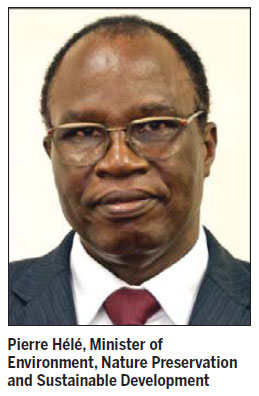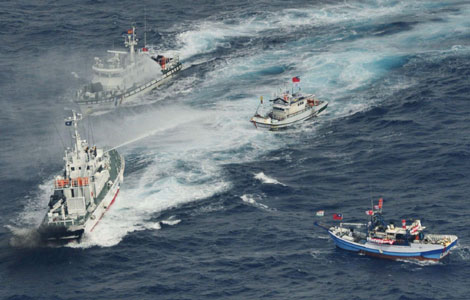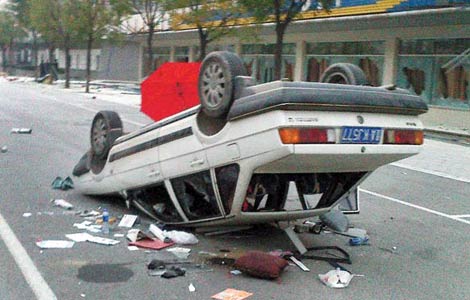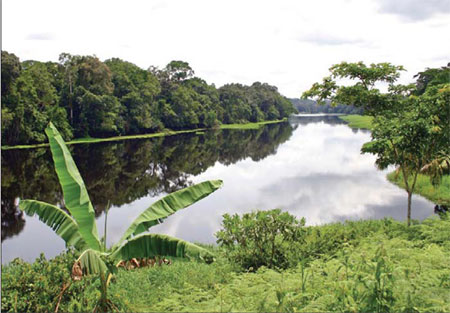Sustainable management of natural resources crucial
Updated: 2012-09-25 08:06
(China Daily)
|
|||||||||||
|
Protecting and preserving Cameroon's natural balance is key priority for the country's government. Photos Provided to China Daily |

Environmental protection, sustainable development and natural resources preservation are some of the fundamental pre-requisites and challenges that feature in Cameroon's "Vision 2035". As President Paul Biya emphasized, Cameroon's environmental challenge is to "preserve the green lung of the planet while ensuring forestry revenues at the same time".
InfocusReports speaks exclusively to Environment Minister, Pierre Hl, in greater depth about this vision.
IF: Let's talk about the Durban Summit, which took place in January. What were the main concepts discussed, and to what extent is Cameroon concerned?
Minister Hl: We were expecting a lot from it but the results have fallen behind our expectations in the four areas that comprise the Bali Action Plan, which speaks about a shared vision based on the principle of common but differentiated responsibility; adaptation to harmful climate changes; attenuation thanks to REDD+ (national strategies of UN-REDD program) and MDP mechanisms; and implementation instruments (financing, technology transfer and capacity strengthening).
What are the main challenges for preservation and protection?
There is a lot of construction going on in the country and it is imperative we get the balance right. In December 2011, we changed to the "Ministry of Environment, Nature Preservation and Sustainable Development", widening our range of responsibilities to five strategic fields:
Sustainable management of biodiversity, where the objective is to reverse the current trend of damage to natural resources.
Fighting against climate change; that goes mainly through avoiding damage, deforestation, and promoting preservation, sustainable management and reforestation.
Fighting against desertification; the "Green Sahel" operation needs to be continued, so basically it implies growing trees in arid areas, especially in the north of the country.
Fighting against pollution, nuisances and dangerous chemicals; we will implement a fiscal incentive system to favor the use of green and biodegradable substances. The systematic repression of polluters will also be implemented.
Sustainable development promotion; we will ensure environmental compliance of every important socioeconomic project in the country. Indeed, environmental and social studies are mandatory before a project begins and as it develops audits must be performed.
As part of our plan to promote sustainable development, we are also calling upon our educators. Schools, from elementary to university level, must make people understand and live the realities of our world, of the environmental challenges it faces and how to tackle them. This is everyone's duty to preserve environment and promote sustainable development.
In terms of coastal preservation, do you intend to bring in new laws to ensure prevention and protection against pollution?
An institutional framework for coastal and marine protection already exists in Cameroon. We have representatives on our shores that can act at the very first alert. We also have a national inspection squad ready to intervene at any time.
On top of that, Cameroon has made amendments to the Abidjan Convention protocol, about state cooperation in fighting pollution in a time of crisis, in order to strengthen our own national emergency plans in case hydrocarbons are spilled in the sea.
The environment and natural resources are fundamental pillars of Cameroon's development. What is your policy in terms of the sustainable management of those resources, especially in mining, water and hydrocarbons?
In accordance with the Convention on Biodiversity, we set up a sustainable management program of natural resources and biodiversity loss reduction. In order to implement it, we have carried out suitable strategies. We have programs for forestry, flora and fauna.
Mining resources are plentiful (bauxite, nickel, cobalt, iron ore, gold, diamond etc.) and a strict mining code was set up regarding their exploitation. Several mega projects are being carried out at the moment.
We have many hydropower projects going on such as Nachtigal, Memve'ele, Menchum, Mekin, Song Mbenge and of course Lom Pangar. That is very interesting for our country because we will have plenty of green and non-polluting energy, which we could even export.
Whatever the project, it is important to understand that every one of them must be compliant with environmental studies.
To what extend are you cooperating with China in your field?
Chinese cooperation is quite hard to quantify, because it is so broad and diversified, in every sector and at every level. China is indeed a strategic partner for Cameroon. You only have to look around at the dams, conference centers, stadiums, roads, hospitals and so on. Cooperation goes beyond infrastructure, however. We have financial cooperation, as well as academic and technological.
In terms of urban development, the option chosen by the President is clear: the use of green energy, hydropower and solar energy especially. The goal is to absorb the energy deficit the country is currently facing, but to absorb it in a sustainable development fashion.
That's why we are putting the emphasis on building dams and solar facilities. We support that step toward a greener economy. This is the trend and the challenge ahead is to achieve all this as quickly as possible.
Why should Chinese businesses select Cameroon?
Cameroon, known for its legendary hospitality, is pleased to welcome Chinese partners to its soil. It is a stable and peaceful country and has a very attractive investment code to match the many investment opportunities it offers. I invite Chinese people to come and invest in Cameroon so our two countries can grow together.
(China Daily 09/25/2012 page17)
Editor's Picks

|

|

|

|

|

|








